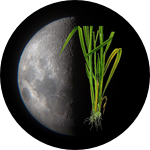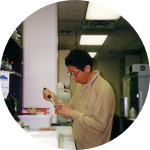About This Project
Rice feeds 50% of human population. Cell-cycle is crucial for rice seed formation. But it is little known which genes control this process. Fortunately our studies point to two promising rice genes. My project is to test their functions in living rice zygotes via stably transformed mutant lines with marked genes of interest. The expected result will help understand molecular mechanisms of rice post-zygotic growth and development, and facilitate crop breeding for better rice trait and yield.
Ask the Scientists
Join The DiscussionWhat is the context of this research?
Since the seed formation is initiated from zygotes, the fertilized egg cell and central cell, the division of the zygotic cell (i.e. cell cycle in this statement) is crucial to rice yield. Without such a cell-cycle initiation from the zygotes, there would be no cell proliferation and differentiation in the embryo and thus no rice grain production. Unfortunately, it is little known which genes work as the initiation control to this process. However, according to the previous research in yeast, human and the model plant Arabidopsis, and particularly the recent study in Dr. Russell lab (see the coverage image), two rice gene encoded proteins, KRP5 and Fb3, are most promising players.
What is the significance of this project?
Our current project is to verify the hypothetical functions of two cell-cycle control genes, KRP5 and Fb3, in living rice zygotes at different stages. This is the first effort in plant biology to reveal the molecular control of the cell division from plant zygotes. The knowledge gained from this experiment will help understand the mechanism of post-zygotic growth and development in rice and other crop plants, and thus facilitate crop breeding for better grain trait and yield.
What are the goals of the project?
Once the transformed mutant lines are available, the expression of KRPs and F-box could be induced under a specific chemical like estrogen and examined in vivo using confocal strategy due to the attached fluorescent markers , which is visible under the specific microscope. Therefore, the interaction between the two proteins could be also monitored at different developmental stages by tracing the level of fluorescent markers. Meanwhile, these mutant material would also provide the platform for a number of histochemical observations and some detailed biochemical analyses such as co-immunoprecipitation and protein degradation, so as to get further insight into the molecular mechanisms of cell-cycle regulation in the early stages of rice seed formation.
Budget
To complete this project, we need to make 2 different T-DNA constructs containing fluorescent labeled KRP5 or Fb3 genes, then use these constructs to transform the wide type, and KRP5 or Fb3 knockout mutant lines, respectively, so as to get 6 new mutant lines.
Since the transformation requires complicated facilities and skills which are not available at our campus, we have to cooperate with the expert of rice transformation, Iowa State University.
Thus the average expense includes:
- Each construct: $610
- Each transformation: $1670
(See: http://agron-www.agron.iastate.edu/ptf/pricing/RiceTransformation.aspx)
The funding target for the above 2 lines is: (1670 + 550) x 2 = 4560 ($).
Endorsed by
Meet the Team
Hengping Xu
As a Chinese American, I worked at several international research labs in plant biology before starting my recent PhD study in University of Oklahoma. This experience laid me a solid background in biochemistry and molecular biology. My current supervisor is Professor Dr. Scott Russell, one of well-known world leaders in the research field of plant reproduction. Under his supervision, I am studying the function and regulation of cell cycle control genes in the early embryo-genesis of Oryza sativa L, the earliest step for rice production. In order to reveal the molecular mechanism underlying the cell-cycle control in the initiation of rice seed formation, we have to carry out a number of important experiments, one of which is what I proposed for the rice transformation. The new finding from this effort will be exciting and beneficial to our society. Unfortunately, the main challenge we are faced with is the insufficient fund. Therefore, any of your support will be greatly appreciated and rewarded in the long run.
Project Backers
- 3Backers
- 1%Funded
- $15Total Donations
- $5.00Average Donation

